
South Africa pacers Nortje and Magala out of Cricket World Cup because of injuries
South Africa fast bowlers Anrich Nortje and Sisanda Magala have been ruled out of the Cricket World Cup because of injuries
1970-01-01 08:00
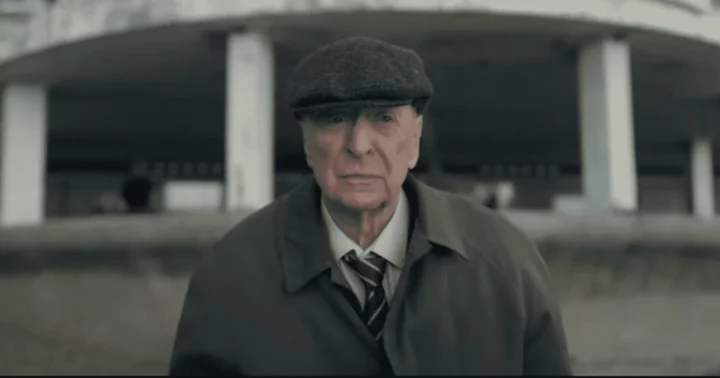
Is Michael Caine OK? 'The Dark Knight' star gets candid about being 90, says 'I sort of am retired now'
Michael Caine makes a rare red carpet appearance at the London Premiere of 'The Great Escaper'
1970-01-01 08:00
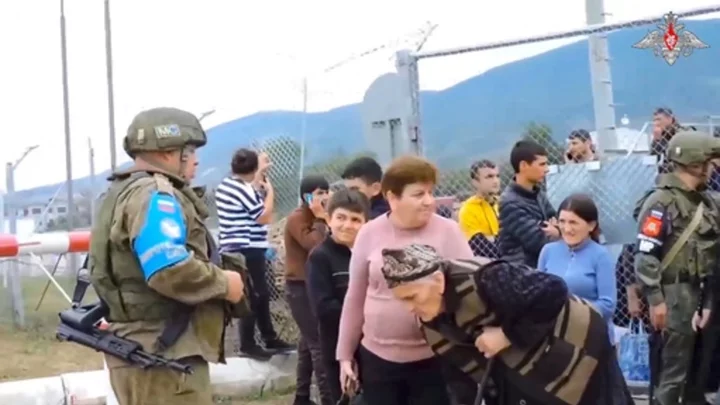
Talks have opened on the future of Nagorno-Karabakh as Azerbaijan claims full control of the region
Talks have opened between representatives from Nagorno-Karabakh and the Azerbaijan government after Azerbaijan claimed full control of the breakaway region
1970-01-01 08:00
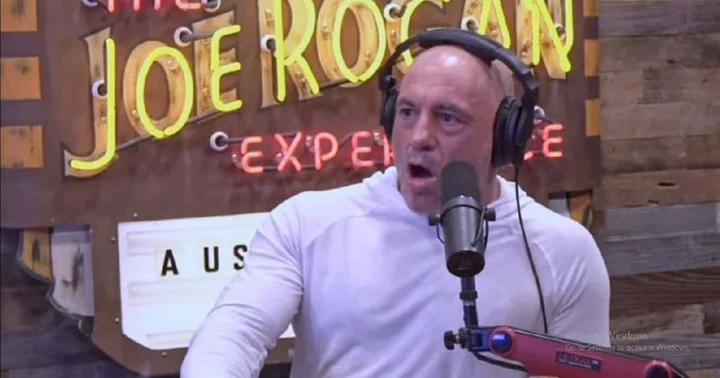
Joe Rogan shares experience after watching ‘one of the scariest f**king movies’, trolls ask ‘how much did they pay you to say this’
As Joe Rogan talked about the film that he just watched, many took to the comment section to troll him for finding it scary
1970-01-01 08:00
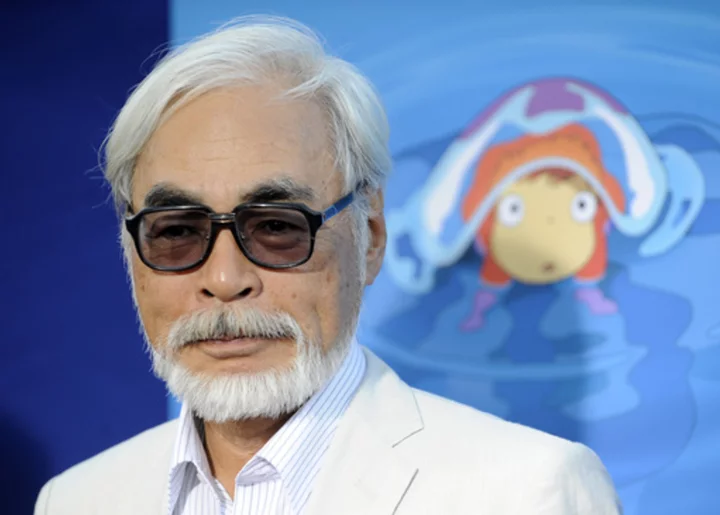
Japan TV network will acquire Totoro creator Studio Ghibli as animation studio prepares for future
Studio Ghibli, the famed Japanese animation studio of Hayao Miyazaki, will become a subsidiary of Nippon Television Network Corp. The companies said Thursday the move was approved by both boards
1970-01-01 08:00
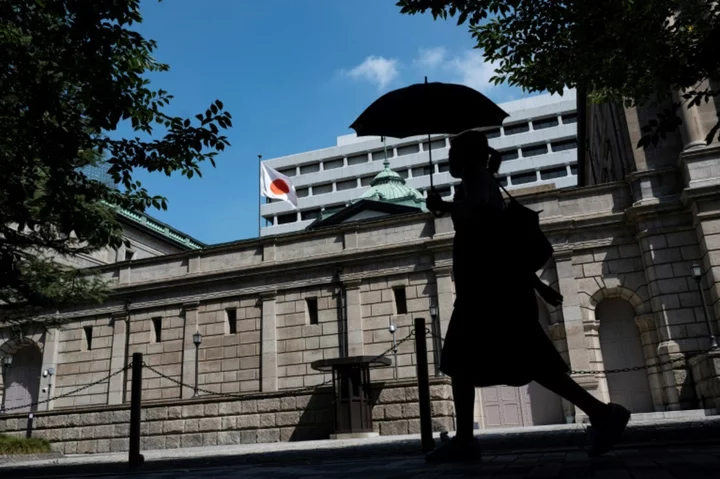
Markets sink, dollar gains as Fed hints at fresh rate hike
Asian and European stocks sank Thursday and the dollar advanced after the US Federal Reserve indicated it could hike interest rates again this year and keep them elevated longer than feared as...
1970-01-01 08:00
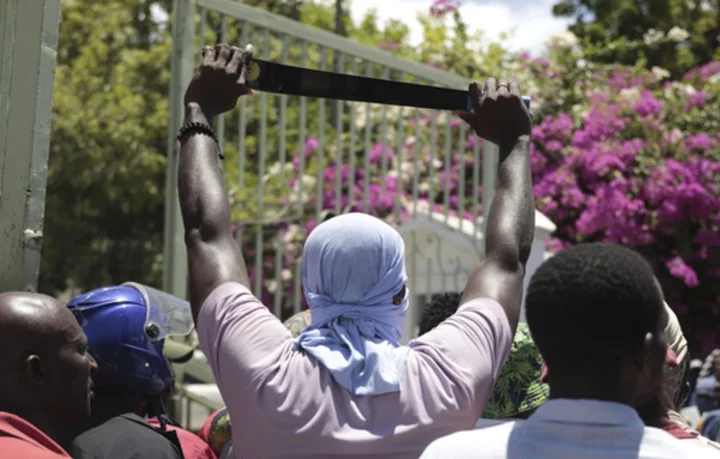
Kenya's president is committing his country to lead a multinational force to Haiti to combat gangs
Kenya’s president is committing his country to lead a multinational force in Haiti to combat gang warfare even as residents of both countries question the plan being pushed by the United States government
1970-01-01 08:00
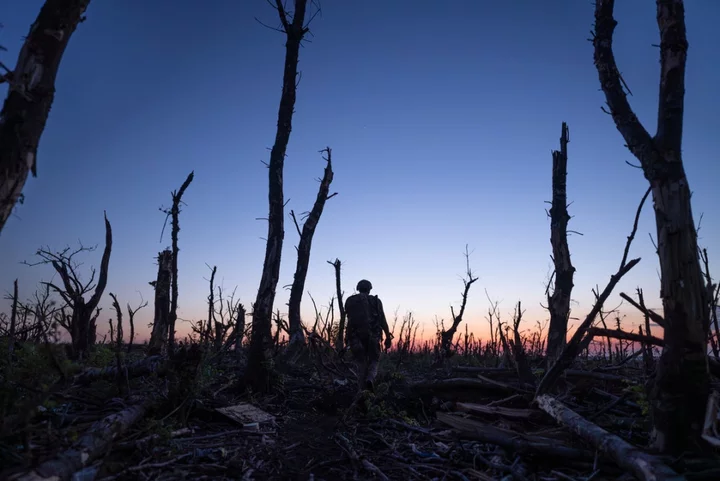
Inside Ukrainian brigade’s battle ‘through hell’ to reclaim village from Putin’s troops on way to Bakhmut
The Russian bullet struck the sergeant just above the left ear. The leader of the Ukrainian platoon was down. Headquarters radioed a battlefield promotion to the private who had called him “brother” — a man known as Courier. Courier knew the platoon's orders were to move forward through the forest, on the road to Bakhmut. He hesitated for 30 seconds near his mortally wounded commander. Maybe a minute. Then he decided: there would be no turning back as he howled “forward”. He fired toward a trench just ahead until he was sure the Russians inside would never shoot again. Then the men stumbled through the charred spindles of trees toward the village of Andriivka — the objective of the 3rd Assault Brigade since the start of Ukraine’s counteroffensive this summer, about 6 miles (10 kilometers) south of the city of Bakhmut. The sergeant, Gagarin, and other injured soldiers could only be evacuated after dark, because the Russians were also hunting downed Ukrainians. Days later, as he prepared for Gagarin's funeral, Courier predicted his own future, his pale eyes unfocused. “This forest is taking our friends away, and this is the worst,” he said. “And when I think about how far we still need to move forward ... most likely someday I will be the one to remain lying in the forest, and my friends will just go forward.” This stretch of dead forest — a couple dozen trees wide and a mile (2 kilometers) long — toward the equally dead village of Andriivka is one of countless like it on the road to Russian-controlled Bakhmut, which has now taken on huge symbolic significance in the Ukrainian counteroffensive. The Associated Press spent two weeks with the brigade for an intimate glimpse into the speed, direction and cost of the counteroffensive, through scenes witnessed in the forest and at rest, in helmet camera footage and drone video. A lot rides on their progress. Ukrainian president Volodymyr Zelensky is making his country's case to Washington on Thursday for more money and weapons, and must persuade his audience that the counteroffensive is working. The US Congress is currently weighing president Joe Biden’s request to provide as much as $24bn more in military and humanitarian aid. In an interview with “60 Minutes,” Mr Zelensky acknowledged the counteroffensive was slow, but added: “It is important that we are moving forward every day and liberating territory.” A study earlier this month by the Royal United Service Institute, a London-based think-tank, found that Ukrainian forces are averaging 700-1,200 meters of progress every five days. That gives Russian forces time to dig in and especially to mine territory as they pull back. The 3rd Assault Brigade, composed entirely of volunteers and considered one of Ukraine’s best and most experienced corps, has been fighting almost nonstop in the east since January, while less-experienced units received new training and modern weapons to fight in the south. The AP is identifying the men by their call-signs, which is both how they identify each other and a military requirement to report in-depth on the unit. Bakhmut fell to Russia in May, largely due to waves of attacks from mercenary Wagner fighters, including prison conscripts thought to have died by the hundreds. Ukraine has been trying to reclaim it ever since, hoping to deal a major psychological blow to Russia. But the soldiers sent to carry out the task are relying on largely Soviet-era armoured vehicles and older weapons. In the past month, the 3rd Assault Brigade had only been able to move a mile (2 kilometers), crossing mines and booby-trapped trenches and dodging artillery, drone-launched grenades and Russian forces within shouting distance. The questions now facing them were the same ones facing their country: Would they succeed, and at what cost? Andriivka was their goal, as important as any strip of land in Ukraine. And on 6 September, the day Courier left his commander's body behind, he and his men took over a trash-strewn trench in the middle of the forest and held it for four full days. On either side of them were mined fields that once grew wheat and now sprout only craters. During moments of rest, he leafed through a diary, written longhand by a Russian soldier: “I’ve been at war for four weeks already and I miss my mum,” Courier read. Courier asked one of the Russian prisoners who surrendered what he knew about the diary. The Russian replied: “I don’t know. I just got here today.” Maybe the author was the Russian whose body Courier propped up to protect himself from incoming fire. Or maybe he was one of the Russians who had shot Gagarin and been killed in turn a few minutes later. Courier didn't know. But by then, Gagarin was dead. And the forest kept claiming others. Shepherd, who was wounded in the leg in the morning and had to wait hours for evacuation from the battlefield, was a mask of pain. Chapa too. A grenade struck Spaniard’s helmet, and the resulting head injury would leave him helpless. Gary had no obvious injuries but was so shell-shocked he could barely make it through a conversation. Courier would go to western Ukraine and represent the platoon at Gagarin’s funeral. Gagarin, ironically named for the Russian cosmonaut who was the first human in space, was buried in his hometown of Polonne, a 550-mile (900-kilometer) drive from the battlefield. As military pallbearers walked uphill toward the churchyard, residents along the way stopped and knelt to honour the dead along flower-lined roads. One of the men carrying the casket remarked on the view from the village cemetery. “I’ve done this 56 times,” he said grimly. Social media feeds from the brigade show dozens of funeral announcements since the counteroffensive began. Gagarin’s mother sought out Courier, who was among the last to see her son alive. But he finds it hard to talk to civilians these days. “I feel like there is a gap between civilians and us now," he said. “When the war is over, I will probably just leave to fight elsewhere.” For Courier, war is complicated. He says he enjoys the dopamine rush, when he leaves the “horrible grinder," comes back to headquarters and jumps down from the armored vehicle. “You look at the sky and you look around, and you understand that you’re alive and nothing can kill you,” he said. "This is the moment. This is a feeling you cannot get anywhere else in life.” And yet he did not want to return to the strip of forest leading to Andriivka. His commanders ordered him to take 10 days’ leave, a break for a fighter whose anguish they sensed despite his outward calm. He would take the time to go fishing and clear his head. “Unfortunately, I’m only able to leave after going through hell,” he said bitterly. On the day of the funeral, 13 September, any man whole enough to fight was in the forest, including another sergeant in the platoon, Fedya. On 5 September, Fedya had been lightly wounded by a cluster munition, and the injury may have saved his life. Gagarin took his place in the assault, and that was the day he died. The last push started on 14 September. Men from other depleted units from the 3rd Assault Brigade joined in for the usual three- to four-day stint on the battlefield. After two months of inching their way forward through the stand of ash trees, maybe they would finally break through the woods to Andriivka. “How many more lives do we need to give?" Fedya asked. "How many more forests are there?” Fedya sees war as something to be perfected through a combination of study and experience. A 24-year-old with a smooth and unlined face, he wears his authority lightly, introspective but with little time or energy to spare on self-doubt or guilt. He dreams of war, and when he wakes, it is there waiting for him to move forward. “War is a science, and you have to get better at it and study. If you don’t, you have no chance of survival,” said Fedya. “The smarter you are, the more qualified you are, the better your chances of coming back alive.” On 14 September, they finally did it — more than three months after receiving the order to reclaim Andriivka. They broke through the shelling and the drone-launched grenades, firing at Russian forces who fled in front of them. The day was a blur. The Ukrainians pummeled the tiny village with artillery and then threw a smokescreen into its main street. Russian artillery hit retreating and surrendering Russian soldiers, whose bodies lay face down or curled on their sides. The last hundred meters was a mix of blood, metal, trash, spent cartridges and shredded armour. The Ukrainians went house to house, taking Russian prisoners and killing those who fought back. Even after the last of the Russian forces were expelled, Andriivka came under constant shelling, with buzzing drones on both sides. Fedya warned his men to shoot down the ones that hovered: They were the ones that dropped grenades. That night, Fedya dreamed he was cowering behind a shrapnel-pierced truck on the battlefield and was hit by artillery fire. The next morning, Fedya carried a Ukrainian flag to hoist in the reclaimed village of Andriivka. It was time to retrieve the bodies. There was the body of 19-year-old Riley, killed on the first day he ever fought. There was Zima. There were others, placed carefully into bags and carried back through the forest. The men left dozens of Russian bodies for later. Andriivka was now nothing but a pile of bricks and scorched trees with the smell of death. But it was in Ukrainian hands, and Fedya was ready to hand control to the next brigade to reclaim the next forest. He huddled in one of the few basements left and tried to explain to the incoming commander why the fight for this broken town was worth it. “Look at these fields, this forest. Everything grows again," he said. "The cities that we reclaim, they will be rebuilt. ... We will clear out all that’s left of the Soviet Union. ... The war could be the best thing to happen, in the sense that everything can start fresh.” Ukrainian officials said this month’s battle’s for the road to Bakhmut may have taken as many as three Russian brigades out of combat, as cited in an assessment Tuesday by the Institute for the Study of War. But Fedya was ready to leave. “I’m tired of this forest. I want to go home. I want to wash and sleep,” he said with a curse. “Until morning. And in the morning, I’ll come back.” Hinnant reported from Paris. Alex Babenko contributed to this story. Read More Ukraine war’s heaviest fight rages in east - follow live Charity boss speaks out over ‘traumatic’ encounter with royal aide 3 South Africa navy personnel die after they are swept off a submarine deck during supply operation Kenya's president is committing his country to lead a multinational force to Haiti to combat gangs Singapore police uncover more gold bars, watches and other assets from money laundering scheme
1970-01-01 08:00

Anime Studio Ghibli Acquired as It Struggles to Find Miyazaki Successor
Studio Ghibli, the animation house behind Spirited Away, My Neighbor Totoro and other movies, will become a unit
1970-01-01 08:00
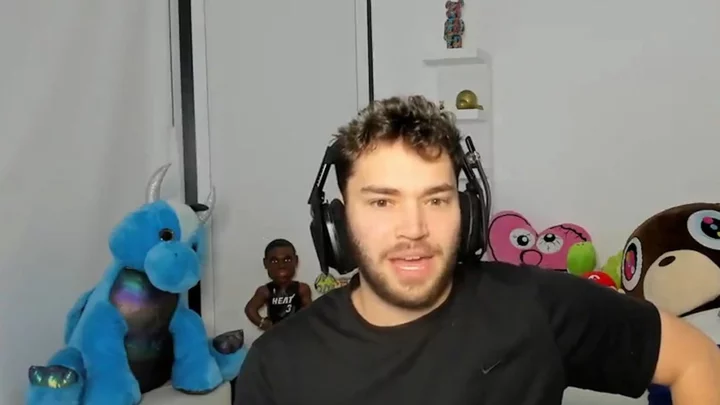
Adin Ross smashes streaming records with 'Kim Jong Un' interview
Kick streamer Adin Ross successfully fooled fans after claiming to have secured an interview with Kim Jong Un leading to a reported record for the platform. Earlier this week during a live stream, Ross said he had the North Korea leader "locked in" for chat which will go live in the next 48 hours. He claimed US officials had warned him against the so-called interview, saying: "We definitely got government officials hitting up my legal team. No, I swear to god, it's not that. It got millions of views on Twitter and it's on TikTok and s**t. They see everything! The government sees everything." He continued: "They saw and hit up, basically, my team and they just let me know there could be consequences for this. You know?" Ross even shared a list of planned questions he intended to ask the leader, including: Thoughts on LGBT? Can you give Stake money back? React to Andrew Tate. Visit North Korea? Add Yeonmi Park to call. Trump vs. Biden. USA better than North Korea. E-date? Fake n*tsack prank. On the day of his scheduled interview, Ross' viewers soared with over 333,506 fans tuning in to get a glimpse of 'Kim Jong Un', who turned out to be none other than Howard X, an impersonator. Later in the stream, Ross invited Andrew Tate into the stream – who was just as confused as everyone else. "Let me tell you all a story," Tate said. "You know like I had no money at all and I was growing up in Luton on a council estate with a single mother and no money?" "I had all these dreams of what I'd do if I ever got rich, 'Andrew, if you make hundreds of millions of dollars, you're gonna do this, you're gonna do that,'" he continued. "Turns out, I go to Romanian jail and get woken up at three in the morning by Adin Ross to come and talk to a Kim Jong Un impersonator." Sign up for our free Indy100 weekly newsletter Have your say in our news democracy. Click the upvote icon at the top of the page to help raise this article through the indy100 rankings.
1970-01-01 08:00
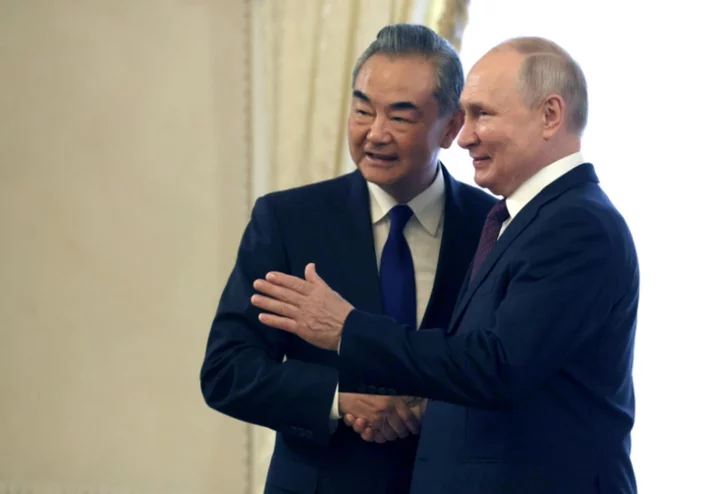
Beijing, Moscow must deepen cooperation: China foreign minister
Beijing's top diplomat told President Vladimir Putin that China and Russia must work to strengthen cooperation in the face of a "complex international situation"...
1970-01-01 08:00

Azerbaijan offensive takes advantage of global turmoil
Azerbaijan has taken advantage of a ripe political moment to bring the breakaway region of Nagorno-Karabakh back under...
1970-01-01 08:00
